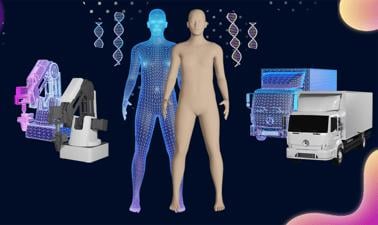MOOC List is learner-supported. When you buy through links on our site, we may earn an affiliate commission.

MOOC List is learner-supported. When you buy through links on our site, we may earn an affiliate commission.
In the fourth industrial revolution, the digital twin is one of the critical technologies that is gaining prominence. The digital twin is the simulation technology that integrates multidisciplinary, multi-physical quantities, multi scales, and multi-probabilities by making full use of a physical model, sensor update, operation history, and other data. During this course, learners will engage in how to create digital twins and utilize them to model, simulate, and manage industrial processes. Digital twins give information on every component of a manufacturing process, allowing you to improve the efficiency and efficacy of your production line and equipment. It may be used to monitor, study, and analyze physical assets like buildings, processes, and systems, as well as to conduct research and development.
What you'll learn
• What are the digital twins and their types
• Characteristics of digital twin technology
• Applications of digital twins in different industries and sectors
• Implementation and deployment of the digital twin
• Future development of digital twins and cyber-physical systems
Syllabus
Module 1: What is a Digital Twin?
Introduction to technologies, applications, opportunities, and challenges influencing digital twin
Module 2: Manufacturing and Production
Introduction to the impact of the digital twin, cyber-physical systems, process automation and optimization, predictive maintenance and anomaly detection on the manufacturing ecosystem and its application
Module 3: Supply Chain and Warehousing
Introduction to digital twin-based operation and management, and simulation-based smart supply chain ecosystem, including quality assurance in the food and beverage sector, warehousing with machine learning and path planning, and warehousing with machine learning and pallet loading
Module 4: Healthcare
Introduction to healthcare and bioengineering applications of digital twins. The bioprocess and its potential, industrial-scale bioreactors and biomanufacturing, hospital administration in industry 4.0, epidermic control prediction, and cloud computing for radiotherapy systems are covered.
Module 5: Conclusions
Discussion on the fundamental characteristics and applications of digital twins, the future of digital twins and forecast for industrial 5.0.
MOOC List is learner-supported. When you buy through links on our site, we may earn an affiliate commission.
MOOC List is learner-supported. When you buy through links on our site, we may earn an affiliate commission.
